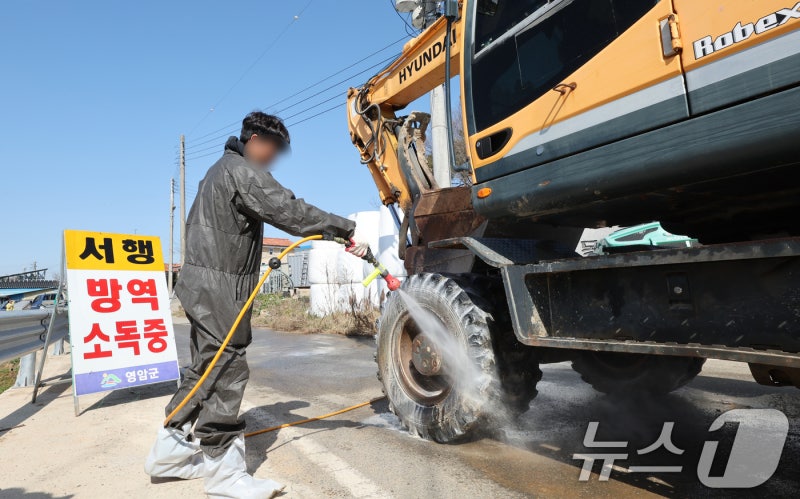
Understanding the Foot-and-Mouth Disease Situation in Korea: Why You Should Care
Hello, international readers! As global citizens, staying informed about health trends in the countries we live in is crucial—especially when it affects agriculture and food safety. In light of a recent outbreak of foot-and-mouth disease (FMD) in Korea, we’ll uncover how this event impacts not just local farmers but spectators like you!
This article explores the current situation involving FMD in Jeonnam and how the Korean government is responding to protect both livestock and human health. Understanding these dynamics is vital for anyone living, working, or traveling in Korea as they may have broader implications for food supply and public health safety.
🌏 What's happening in Korea? (Quick overview)
Recently, an outbreak of foot-and-mouth disease was confirmed in Jeonnam, disrupting local agricultural activities. The Jeju provincial government has heightened its bio-security measures to prevent the disease's spread, escalating its livestock disease alert from "caution" to "alert." They have deployed strict movement restrictions and intensified surveillance in the region, emphasizing the urgency of prevention.
💡 Why this matters for foreigners? (Impact analysis)
The FMD outbreak could influence food prices and availability, impacting both locals and expatriates in Korea. As a foreigner, understanding the significance of these developments is essential, especially for those involved in agriculture, culinary professions, or any city’s local markets. Being informed can help you navigate potential changes in food sourcing and local meat consumption practices.
📌 How to take advantage of this? (Step-by-step guide)
1. **Stay Informed**: Regularly check local news updates about the FMD situation. Social media and community forums can offer real-time information.
2. **Adjust Your Diet**: Be mindful of meat consumption from affected areas. Try exploring vegetarian options or high-quality alternatives from unaffected regions.
3. **Engage with Local Communities**: Join expat groups to discuss how the situation is evolving and share tips on adapting to any market changes.
4. **Learn About Agri-tourism**: Consider visiting farms that are maintaining good practices to see firsthand how locals are managing the outbreak.
🇰🇷 Understanding Korea's system (Cultural & bureaucratic insights)
The Korean agricultural system is structured to respond quickly to outbreaks like FMD. The government works closely with livestock farmers to implement bio-security measures, including vaccinations and movement controls. Understanding this framework helps foreigners appreciate how seriously such matters are taken here, illustrating the cultural values placed on community welfare and health.
🌟 Tips for foreigners living in Korea
1. **Familiarize Yourself with Local Food Sources**: Know which markets provide safe products and establish relationships with vendors.
2. **Participate in Local Events**: Engage in community events that promote safe eating practices during these times.
3. **Be Proactive**: Participate in forums regarding food safety where you can share insights and learn more about the local agricultural landscape.
4. **Advocate for Healthy Practices**: Talk to neighbors and friends to share knowledge on bio-security measures, fostering a supportive environment.
🔮 What's next? (Future trends & additional insights)
Korea aims to maintain its status as a disease-free zone by stepping up vaccination drives and moving to educate the public on FMD preventive measures. As a foreign resident, understanding these changes can equip you for living in a rapidly evolving environment. Additionally, keep an eye on trends in the agricultural sector as they may affect food prices and local business opportunities in the coming months.
🇰🇷 Learn Korean from this Article!
Improve your Korean language skills with these key phrases from the article:
🔤 Korean Phrase 1: "구제역 발생"
🔤 Pronunciation: gujeok yeok balsaeng
🔤 English Translation: "Foot-and-mouth disease outbreak"
🔤 Usage Tip: Use this term when discussing livestock health issues with locals.
🔤 Korean Phrase 2: "긴급 방역"
🔤 Pronunciation: gingeup bangyeok
🔤 English Translation: "Emergency quarantine"
🔤 Usage Tip: This phrase is useful to know during health and safety discussions regarding livestock.
🔤 Korean Phrase 3: "농장 차단 방역"
🔤 Pronunciation: nongjang chadan bangyeok
🔤 English Translation: "Farm blockage bio-security"
🔤 Usage Tip: Use this when talking about farm safety measures.
🙋 Essential FAQs for Foreigners
Can foreigners participate or apply?
Yes, foreigners can actively participate in community discussions regarding agricultural safety and health measures. Many local forums welcome insights from a diverse audience.
Do I need to know Korean for this?
While knowing Korean is helpful for deep discussions, many communities offer English options and resources to ensure everyone understands the guidelines during outbreaks.
Where can I find official details?
For official information, refer to government health websites or local agricultural forums that provide updates on FMD and other agricultural matters.
In conclusion, staying informed and proactive as a foreigner in Korea is vital, especially during health-related challenges. Engage with your community and continue learning to navigate this evolving landscape smoothly.
📱 Get the BeraKorean App & Stay Updated!
Want to improve your Korean skills and stay informed about life in Korea? Download the BeraKorean app for exclusive content:
- 📱 Android: Download on Google Play
- 🍎 iOS: Download on App Store
📺 Follow us on BeraKorean YouTube for Korean lifestyle & language content!
🌏 Visit berakorean.com for more updates, news, and insights on living in Korea.
🔗 Read the Original Korean Article
Want to dive deeper? Check out the original article here:
📢 Tags
#KoreaNews #LifeInKorea #ForeignersInKorea #KoreaOpportunities #KoreaLiving #LearnKorean #KoreanLanguage